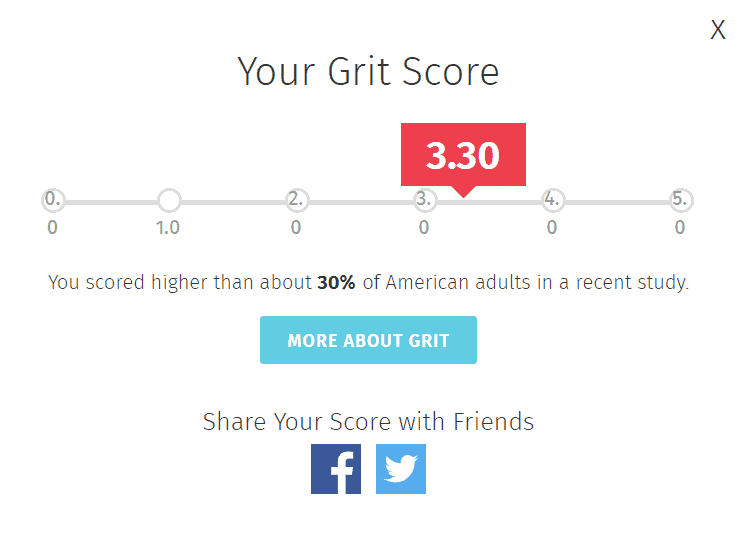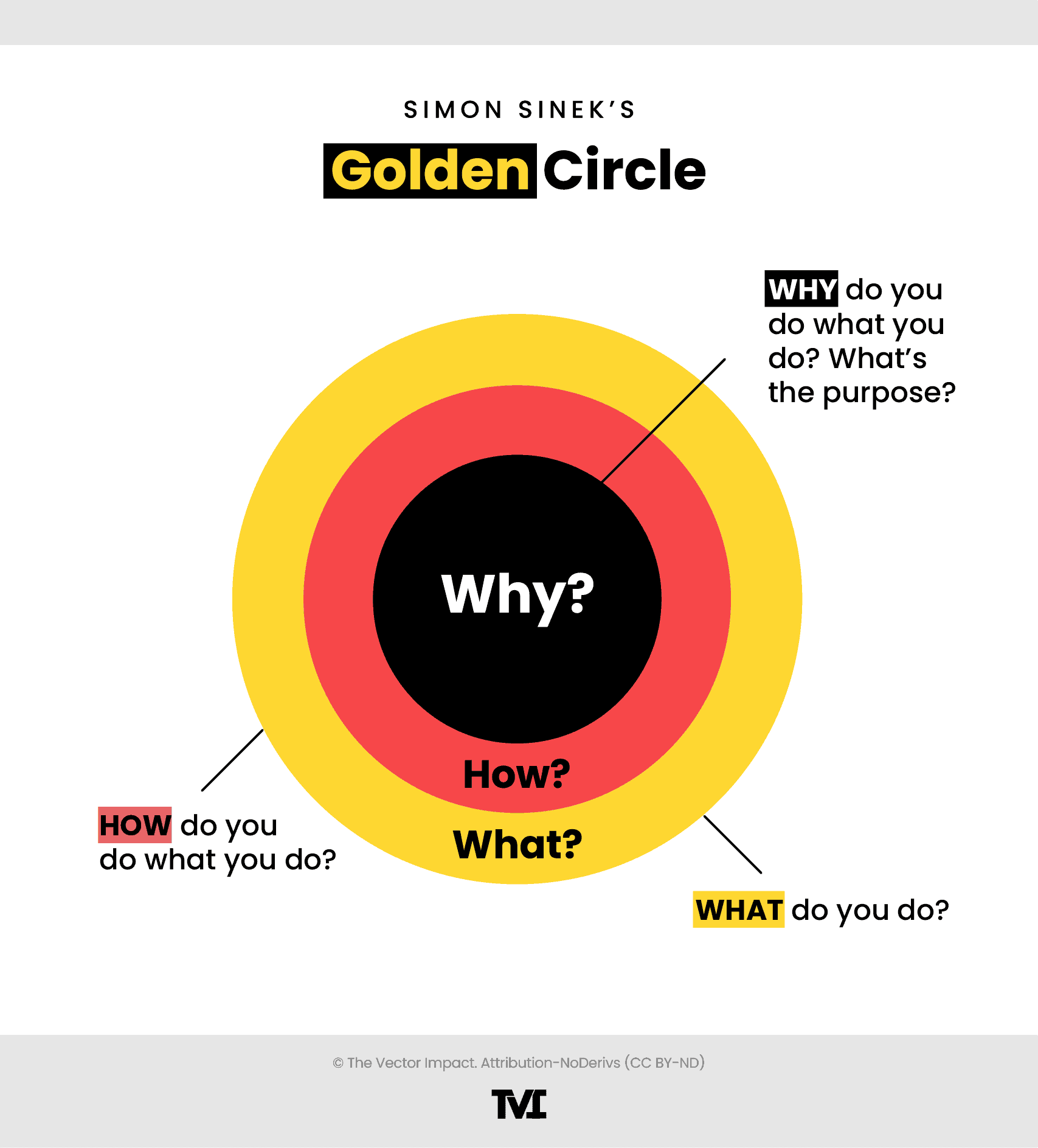Table of Contents
“Here we go again,” I thought to myself.
I wrapped my hands, grabbed a skipping rope, and started skipping.
I was eight weeks into a 12-week kickboxing training camp. We had trained two times a day, six days a week, for a chance to fight in the ring.
My calves were really, REALLY sore. I didn’t feel like I was progressing fast enough. I was tired of being hit in the face every night. But I kept my eyes on the prize because I wanted to compete in my first amateur bout.
At the end of week 10, our coaches sat us down and told us they had narrowed down who was going to fight.
They went through a list of names. Mine wasn’t called.
When I turned up to training the next week, almost all of the people who weren’t selected had dropped out. I was one of only a handful that kept training until the 12 weeks were up, even if we didn’t get to fight at the end.
Sure, it was a bummer to not get picked. But I signed up for the camp with the goal of reaching the end, and I wanted to see it through. I knew that the skills I would get from training with the fighters would be valuable for when I eventually did make it in the ring. Even if I had to keep getting punched in the face.
Was I happy?
Not really.
But at that moment, it wasn’t about being happy.
It was about committing to a long-term goal, even when things didn’t go my way. It was about grit.
This experience sums up a feeling that most of us have become far too familiar with over the past few years. We’ve worked hard towards something, only to have it turn out completely different from the way we expected.
Goals of competing at state or nationals, only to have the game get canceled.
Goals of studying abroad, only to have borders closed.
Working hard to land your first job, only to do everything remotely.
The events from the past few years have forced us to put our lives on hold and punched us in the face again and again. It’s no wonder that young people are feeling more miserable.
The truth is, life is filled with moments like this.
Adversity is inevitable and we’re always going to encounter moments that test us and push us. And at times like these, what sets the most successful apart from the rest is the ability to persevere—despite when things don’t go as planned or when it feels like we’re making no progress at all.
It’s the people with grit that ultimately succeed and reach their goals.
What is grit and why does it matter?
Grit is the combination of passion and perseverance towards a meaningful long-term goal.
It’s about having the resilience, ambition, and self-control to chase after goals that may take months or years to achieve—regardless of the recognition you get along the way.
Getting into the college you want after late nights studying by yourself.
Going after your dream job, even if you get rejected the first time around.
Putting in the extra time to work on a technique, even when the coach isn’t there and your teammates have gone home.
All of these are examples of having grit.
Like most ideas, grit first caught on through a TED talk. In this case, the speaker was psychologist, educator, and author Angela Duckworth.
As a seventh-grade math teacher, Duckworth found the difference between her best-performing students and worst-performing ones wasn’t IQ. It was their ability to keep trying and work hard even if they didn’t get the concepts straight away.
This led her on a mission to figure out what sets successful people apart from the rest. She studied all kinds of challenging situations, from military training camps to teachers in rough neighborhoods and salespeople in private companies.
And she found that everyone that was successful shared the same trait: grit.
According to Duckworth, grit is one of the main elements that determine whether someone is going to be successful in life—whether it’s in school, work, relationships, or anything else.
In other words, if you want to live your best life, you have to know how to develop grit.
Why developing grit matters now more than ever.
Grit is valuable at every stage of life, whether you’re a seventh-grader in Angela Duckworth’s math class or the leader of a Fortune 500 company.
But if there’s any time to develop grit, it’s right now.
You know—at this moment when life keeps throwing curveball after curveball and it feels like everything is NEVER going to go back to normal.
Unsurprisingly, gritty people have fared much better during the pandemic.
One study of adults during the pandemic found that those with more grit were more active and had better dietary habits, which helped them lead a healthier lifestyle through the lockdowns, uncertainty, and stress.
It’s not just health either. The gritty people are the ones that managed to find a way to adapt to their circumstances, cope during the tough times, or try something new.
So here’s the biggest question…
How do you develop more grit?
After taking the grit test on Angela Duckworth’s website, it turns out I have a long way to go when it comes to developing grit 🤦

It IS possible to increase your grit (phew).
In fact, there are four specific characteristics that all people who exemplify grit have in common. These are all things that we can proactively strive to build upon in order to develop more grit in the face of adversity.
1. Focus on things that you enjoy and are interested in.
When I was in college, I took a class on Government and International Relations. I spent the entire semester playing Heroes of Might and Magic IV on my laptop. However, when it came to Film Studies, I would rewatch every week’s movie over and over again and do all of the extra recommended readings.
Guess which one I got the higher marks in.
Here’s the thing: grit doesn’t and shouldn’t apply to everything. None of us have enough energy to persevere in every single thing in our lives with full force and commitment.
I can’t make it my goal to be CEO of a company AND an Olympic athlete AND run a charity AND win a Nobel prize all at the same time.
The very nature of being gritty means you’re committing your focus and energy to one objective at the expense of other things.
The people who are gritty are the ones who are passionate about what they’re doing because they have an end game—a goal that they’re so motivated by and invested in that they’re willing to pay the price for success.
Grit is about having what some researchers call an ‘ultimate concern’—a goal you care about so much that it organizes and gives meaning to almost everything you do. And grit is holding steadfast to that goal. Even when you fall down. Even when you screw up. Even when progress toward that goal is halting or slow.
2. Try to improve every day, even if you feel you’re going nowhere.
Of course, it’s not just enough to have a goal. You have to keep deliberately working towards that goal, no matter how small or insignificant your progress might seem.
When I was younger, I practiced karate at my local dojo. I was always so impressed by the black belts because they seemed to be true masters of the martial art…until my sensei told me that getting a black belt only meant that someone had mastered the basics.
Apparently once a student gets their black belt, that’s when the training REALLY starts (unless, of course, you’re training at Cobra Kai).
After four-plus years of training every day and doing every technique more than 10,000 times, these black belts were only at the beginning of their journey. They were still trying to improve on the smallest of details and perfect their craft, even if it meant correcting their hand a fraction of an inch or moving a split-second faster.
That pretty much sums up the second characteristic of grit: perseverance. To deliberately and purposefully keep going towards a goal over time, even when it feels like you’re not getting anywhere at all.
3. Find the deeper purpose in what you’re trying to achieve.
We’ve all jumped into a new hobby or diet with full enthusiasm, only to have that energy wane over time. The difference between this and something that sticks is the sense of purpose you have behind your actions.
Gritty people understand that reaching their goals is about playing the long game.
In some cases, it might be months, years, or even decades before you reach your ultimate goal. If you don’t believe that what you’re doing matters, it’s going to be tough to keep that spark burning during things like a global pandemic.
Get clear on the meaning and value behind your long-term efforts. When you reframe your goals and start with why, it’ll be easier to keep going, even when things get rough.

4. Have faith in your ability to overcome adversity.
There’s an episode of “Friends” where Monica dates Pete Becker, a super-successful computer programmer who has his sights set on becoming the Ultimate Fighting Champion. After he lost his first fight, Monica asked Pete to give up, and the conversation went like this:
While there are some things you shouldn’t have to learn (like letting a guy stand on your neck), you have to admire Pete’s unwavering belief that he can overcome adversity.
If you have faith that you’re capable of overcoming challenges, you’ll be more resilient to the inevitable setbacks along the way. People with grit understand that failure doesn’t last forever, and that it’s okay to fall as long as you get back up.
Of course, this is easier said than done—especially when you’ve gone through multiple setbacks over the years (I’m looking at you, COVID). But this growth mindset makes all the difference when it comes to achieving long-term success.

The next time something doesn’t work out and you catch yourself giving up mental real estate to the past, flip your thoughts.
Ask: what can I do now? Concentrate on the next step to fix the problem, or improve for next time. After you’ve done that, think about the next step. And so on, and so on.
Grit is a muscle. Work it, and it will grow.
Everyone has the power within them to develop grit.
Don’t get me wrong—it’s not easy. It takes time to reframe your thinking and to become more intentional with your goals. But over time, you’ll find that grit becomes a part of how you approach challenges and overcome them to become successful in whatever you choose to do.
We need to take our best ideas, our strongest intuitions, and we need to test them. We need to measure whether we’ve been successful, and we have to be willing to fail, to be wrong, to start over again with lessons learned.
—Angela Duckworth
As for me, I finished the 12-week camp. And you can bet I’m still training to (one day) make my amateur fighting debut.


